
Journal of Groundwater Science and Engineering
Scope & Guideline
Innovating solutions in groundwater science and engineering.
Introduction
Aims and Scopes
- Hydrogeology and Groundwater Modeling:
The journal extensively covers hydrogeological studies that involve groundwater modeling techniques, including numerical simulations and analytical methods to assess groundwater flow, recharge, and aquifer properties. - Water Quality Assessment and Management:
Research on groundwater quality, including the assessment of contaminants, health risks, and the suitability of water for agricultural and other uses, is a core focus area, emphasizing sustainable management practices. - Geothermal Energy and Resource Management:
The journal contributes to the understanding and application of geothermal resources, including their assessment, modeling, and management, particularly in relation to sustainable energy solutions. - Remote Sensing and GIS Applications:
Utilization of remote sensing and Geographic Information Systems (GIS) for groundwater exploration, potential zone delineation, and environmental impact assessments is frequently featured, showcasing technological advancements in the field. - Climate Change Impacts on Groundwater Systems:
The journal includes studies that explore the effects of climate variability and change on groundwater resources, including alterations in recharge patterns, water levels, and ecological impacts.
Trending and Emerging
- Integration of Advanced Modeling Techniques:
There is a growing trend towards the integration of advanced modeling techniques, such as machine learning and multi-dimensional simulations, to enhance the understanding of groundwater dynamics and improve management strategies. - Focus on Groundwater-Ecosystem Interactions:
Emerging research emphasizes the interactions between groundwater systems and ecosystems, investigating how groundwater quality and quantity influence ecological health and vice versa. - Assessment of Anthropogenic Impacts:
Research increasingly addresses the impacts of human activities, such as urbanization and mining, on groundwater systems, highlighting the need for sustainable practices and remediation strategies. - Technological Innovations in Groundwater Remediation:
The journal showcases an uptick in studies focusing on novel remediation technologies, such as the use of nanomaterials and bioremediation techniques, to address groundwater contamination issues. - Geothermal Resource Development and Sustainability:
There is a notable increase in research related to the sustainable development of geothermal resources, reflecting a broader interest in renewable energy solutions and their integration with groundwater management.
Declining or Waning
- Traditional Aquifer Characterization Studies:
Research focused solely on conventional aquifer characterization methods without integrating advanced modeling or interdisciplinary approaches appears to be waning, as researchers increasingly favor innovative and comprehensive methodologies. - Localized Case Studies with Limited Generalizability:
There has been a noticeable decrease in the publication of localized case studies that do not offer broader implications or applicability, as the journal aims to enhance its global relevance and impact. - Basic Groundwater Quality Monitoring:
Studies that only focus on basic monitoring of groundwater quality without addressing specific contamination issues or management strategies are becoming less common, as the journal encourages more applied research that addresses real-world challenges.
Similar Journals
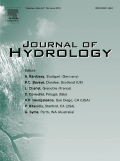
Journal of Hydrology
Innovating Solutions for Global Water ChallengesThe Journal of Hydrology, published by ELSEVIER, stands as a premier outlet for scholarly research in the field of water science and technology. With an impactful history dating back to 1949 and a convergence period extending to 2024, this journal has consistently provided a platform for cutting-edge research that shapes our understanding of hydrological processes and their implications. Located in the Netherlands, its commitment to excellence is underscored by its impressive Scopus rank of 15 out of 261 in the Environmental Science category, placing it in the 94th percentile overall, and achieving a prestigious Q1 category allocation for 2023. While the journal does not currently offer open access options, it remains an invaluable resource for researchers, professionals, and students seeking to deepen their expertise in hydrology. The rigorous peer-review process ensures the publication of high-quality manuscripts that contribute significantly to the advancement of knowledge in this critical domain.
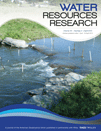
WATER RESOURCES RESEARCH
Transforming Water Research into Actionable InsightsWATER RESOURCES RESEARCH, published by the American Geophysical Union, stands as a premier journal in the field of environmental science, specifically within the domain of water science and technology. With an impressive impact factor and a categorical ranking of Q1 for 2023, it ranks within the top 10% of relevant journals, evidencing its critical role in advancing the knowledge and application of water resources research. Since its inception in 1965, the journal has been dedicated to rigorous research that addresses pressing global challenges related to water resource management, hydrology, and environmental sustainability. The journal's comprehensive publication scope aims to present innovative findings and methodologies that can shape effective policies and practices. Although it does not offer open access, the robust research it publishes continues to influence academics and practitioners alike, ensuring its position as an essential resource for anyone engaged in the pursuit of water-related knowledge and solutions.

RBRH-Revista Brasileira de Recursos Hidricos
Championing Open Access to Vital Water ResearchRBRH-Revista Brasileira de Recursos Hidricos is a leading peer-reviewed journal dedicated to the dissemination of high-quality research in the field of water resources, published by the Associação Brasileira de Recursos Hídricos (ABRH). With both ISSN 1414-381X and E-ISSN 2318-0331, this journal has established itself as an essential resource since its transition to Open Access in 1996, fostering widespread accessibility to vital research findings. Based in Brazil, the journal serves a global audience, embodying a commitment to the study and management of aquatic systems, including their dynamics and technological solutions. As part of its rigorous academic contributions, it has achieved Q3 rankings across categories such as Aquatic Science, Earth-Surface Processes, Oceanography, and Water Science & Technology, reflecting its impact and relevance in these domains. Researchers, professionals, and students are encouraged to engage with the journal's diverse array of studies from 2016 to 2024, consolidating knowledge on crucial water resource challenges and innovations.
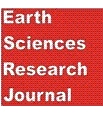
Earth Sciences Research Journal
Exploring the Depths of Earth and Planetary SciencesThe Earth Sciences Research Journal, published by the UNIV NACIONAL DE COLOMBIA, serves as a pivotal platform for the dissemination of knowledge in the diverse field of Earth and Planetary Sciences since its inception. With an ISSN of 1794-6190 and an E-ISSN of 2339-3459, this Open Access journal has been committed to providing unrestricted access to high-quality research since 2004. Located in Bogotá, Colombia, it has gained recognition within the academic community, achieving a Q3 quartile ranking in Earth and Planetary Sciences and notable Scopus rankings, which further underscores its relevance and reach. Its scope encompasses varied research topics, making it an essential resource for researchers, professionals, and students alike, seeking to contribute to or stay informed on the latest developments in the Earth sciences up to the year 2024. The journal not only anticipates cutting-edge research but also emphasizes collaborative dialogues among global experts, driving forward the conversation on critical issues facing our planet.

BOLETIN GEOLOGICO Y MINERO
Uncovering Earth's Secrets, One Study at a TimeBOLETIN GEOLOGICO Y MINERO is a significant academic journal published by the Instituto Geológico Minero de España, focusing on the fields of Geology and Geochemistry. Established in 1980, this journal provides a platform for researchers to disseminate vital studies and findings in the earth sciences, encompassing an array of topics from mineralogy to environmental geology. Despite its Q4 ranking in both Geochemistry and Petrology and Geology categories as of 2023, the journal serves as a resource for emerging research and innovative methodologies in these critical fields, promoting a deeper understanding of geological processes and materials. While currently operating without an open-access model, the journal is committed to advancing knowledge through rigorous peer-review standards. With its roots in Spain, the BOLETIN GEOLOGICO Y MINERO significantly contributes to the European geological research community and remains an invaluable resource for students, professionals, and researchers alike engaged in the pursuit of geological science.

Groundwater
Navigating the Future of Groundwater ResearchGroundwater is a premier academic journal published by WILEY, focusing on the critical intersection of hydrology, environmental science, and technology. Established in 1963, this journal has a rich tradition of publishing high-quality research and reviews that examine the complex dynamics of groundwater systems, their management, and their role in ecosystems and human society. With an impact factor reflecting its relevance and rigor, Groundwater ranks in the Q2 category for both Computers in Earth Sciences and Water Science and Technology as of 2023, underscoring its significance in these fields. It is crucial for researchers, professionals, and students striving to stay at the forefront of groundwater research and management methodologies. By providing insight into both theoretical frameworks and practical applications, Groundwater serves as an essential resource for addressing pressing water resource challenges.

Water Research X
Pioneering research for a water-secure future.Water Research X is a prestigious journal published by ELSEVIER, focusing on the dynamic fields of water science and technology, pollution, ecological modeling, and waste management. Since its inception in 2018, this Open Access journal has become a cornerstone resource for researchers and professionals dedicated to advancing our understanding and management of water resources. Based in the United Kingdom, Water Research X holds an impressive ranking within the Scopus metrics, positioned in the Q1 category across multiple relevant disciplines, including Environmental Science, with a notable rank of 10/261 in Water Science and Technology and 3/41 in Ecological Modeling. This reflects its commitment to disseminating high-quality research that informs policy, supports sustainable practices, and fosters innovation in water management.
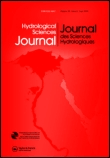
Hydrological Sciences Journal
Elevating understanding of our vital water systems.Hydrological Sciences Journal, published by Taylor & Francis Ltd, is a leading peer-reviewed publication dedicated to advancing the field of hydrology, spanning topics from water management to climate impacts on hydrological systems. With an impressive impact factor and a noted Q1 category ranking in Water Science and Technology, the journal occupies a pivotal role in the academic landscape, facilitating high-quality research dissemination since its inception in 1982. The journal is indexed in Scopus, holding a commendable rank of #48 out of 261 in the Environmental Science category, placing it in the 81st percentile among its peers. Although it does not offer Open Access options, the journal ensures extensive reach and readership through institutional subscriptions. As it converges toward its milestone of 2024, the Hydrological Sciences Journal remains an indispensable resource for researchers, professionals, and students eager to explore the latest advancements and methodologies in hydrological research.

Hydrology
Fostering dialogue on water resource management.Hydrology, published by MDPI, is a prominent open-access journal dedicated to advancing the field of hydrological science. Since its establishment in 2014, the journal has garnered a reputation for excellence, reflected in its classification within the Q2 quartile for 2023 across multiple categories including Earth-Surface Processes, Oceanography, Water Science and Technology, and Waste Management and Disposal. Based in Switzerland, Hydrology provides a vital platform for scholars and practitioners to disseminate research findings, promote innovative methodologies, and foster discussions on current trends affecting water resources and management globally. The journal is easily accessible online and aims to significantly contribute to the understanding of hydrological processes, offering insights that are pivotal for addressing contemporary environmental challenges. With Scopus rankings showcasing its growing influence, Hydrology is a crucial resource for researchers, students, and professionals committed to water science and sustainable practices.
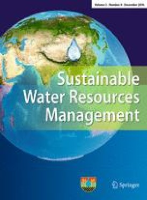
Sustainable Water Resources Management
Driving impactful practices for sustainable water resources.Sustainable Water Resources Management is an esteemed journal focusing on the critical field of water resource management in the context of sustainability. Published by Springer International Publishing AG, this journal serves as a vital platform for researchers, policymakers, and practitioners to disseminate cutting-edge research and innovative practices aimed at addressing global water challenges. With an impressive impact factor aligned with its Q2 ranking in Water Science and Technology and Q3 in Renewable Energy, Sustainability, and the Environment, it maintains a robust reputation in its field, evidenced by its Scopus rankings. Covering a diverse range of topics from integrated water resource management to the nexus between water and energy, Sustainable Water Resources Management is committed to fostering knowledge exchange and encouraging interdisciplinary dialogue among its audience. This journal, operating under strict academic rigor, plays an essential role in advancing sustainable practices and is open from 2015 to 2024, making it a relevant resource in today’s rapidly evolving environmental context.